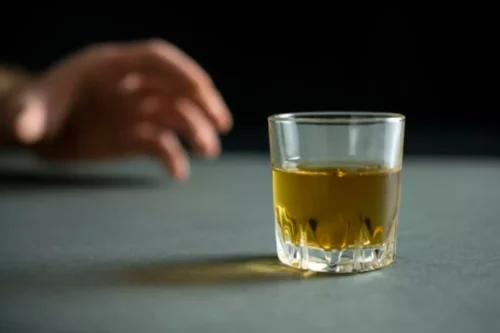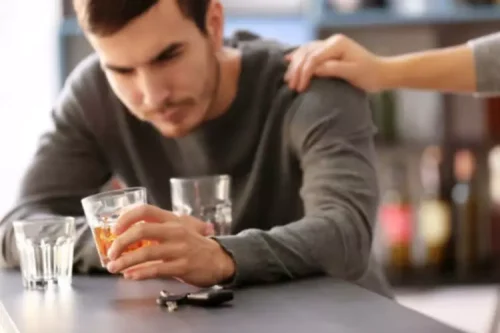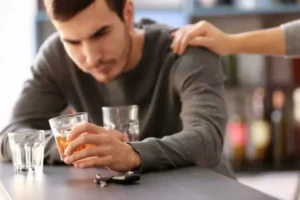
These hangover shakes, also known as alcohol tremors, typically manifest in various parts of the body such as the hands, fingers, arms, eyes, head, and voice. The duration of these shakes can vary from person to person but generally won’t last longer than a day or two, especially if alcohol is consumed frequently. Recognizing alcohol dependency is crucial for understanding the causes behind shaking after drinking. Identifying the signs and symptoms of alcohol dependency can help individuals seek proper medical assistance to address their condition effectively. Alcohol withdrawal syndrome refers to a range of symptoms that can occur when an individual with alcohol dependency suddenly stops or significantly reduces their alcohol intake. Shaking or tremors are one of the common symptoms experienced during alcohol withdrawal.

You Experience Severe Symptoms:

They are usually a symptom of alcohol withdrawal, but can be a result of other alcohol-related issues as well. Surrounding yourself with a strong support network is vital in the long-term recovery and management of alcohol tremors. This network can consist of friends, family, or support groups who understand the challenges one might face as a heavy drinker dealing with alcohol tremors. Support groups, in particular, offer a platform to share experiences and coping strategies, fostering a sense of community and accountability. Remember, alcohol withdrawal can be a difficult and potentially dangerous process.
- Doing something simple, like writing or typing, with alcohol tremors becomes a lot more difficult.
- These therapies can take various forms, including individual therapy, group therapy, and family therapy, each offering different benefits.
- Alcohol shakes, or tremors, occur when a long-term or heavy drinker stops consuming alcohol.
- If you stop drinking suddenly after long-term, consistent consumption, you are at risk for a dangerous condition called alcohol withdrawal.
Symptoms and Causes
Hangover shakes, also known as tremors, are a common symptom experienced by individuals who have indulged in excessive alcohol consumption. While the exact cause of hangover shakes is not fully understood, several factors are believed to contribute to their occurrence. The primary shaky after drinking alcohol causes of hangover shakes include alcohol-induced dehydration, electrolyte imbalance, and alcohol withdrawal. If alcohol consumption is affecting your health, relationships, work, or daily life, it might be time to seek professional help.
Alcohol-Induced Dehydration

At Sabino Recovery, we understand the complexities of addiction and provide tailored therapy sessions for each individual. Our therapists focus on personal development, allowing you to rebuild your life after alcohol abuse. Most insurance providers offer some form of rehab insurance, either as part of their standard coverage or as an add-on policy. This can lead to short and long-term complications for your physical and mental health. While alcohol shakes are fairly common, only 5-10% of heavy drinkers experience DTs. Those experiencing alcohol withdrawal who do not need medical detoxing should keep busy with activities, hobbies, and promote their health and well-being.
Some people have a headache a few hours after drinking wine — especially red wine. But it’s different from a hangover, which may or may not include a headache. It’s possible that some chemicals in wine and how the body responds to them could result in a headache after drinking wine. Tremors are not always a sign of alcoholism, as there are many causes of tremors. Alcohol shakes are a symptom of the disorder when they occur with other signs of AUD.
There is no way to know if you will experience alcohol tremors after drinking, but symptoms usually start around 6 hours after your last drink, which is good to keep in mind. Hand tremors from alcohol can last anywhere from a couple of days to several weeks, so it’s important to seek medical attention if your tremors do not go away or get worse over time. If you experience persistent or severe hangover shakes, it is crucial to consult a healthcare professional. They will be able to evaluate your symptoms, provide a proper diagnosis, and recommend appropriate treatment options. A healthcare professional can also help rule out any underlying health conditions that may be contributing to the shakes. While hangover shakes are usually temporary and subside on their own, there are certain situations where seeking medical attention is necessary.
- They are usually a symptom of alcohol withdrawal, but can be a result of other alcohol-related issues as well.
- If you experience persistent or severe hangover shakes, it is crucial to consult a healthcare professional.
- Consuming a balanced meal before drinking can help slow down alcohol absorption, reducing its impact on your body.
- Last year, we expanded our services to include robust mental health services, new locations, and specialized services for our nation’s veterans with more to come this year!


